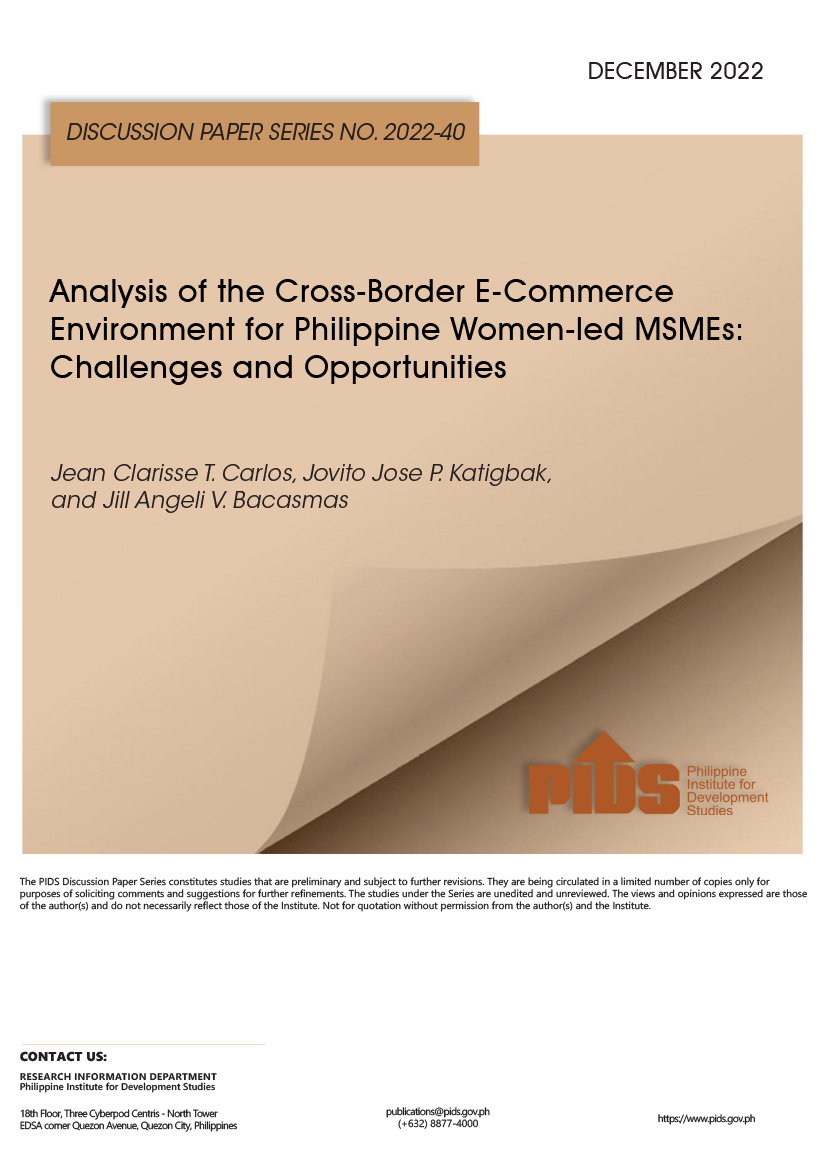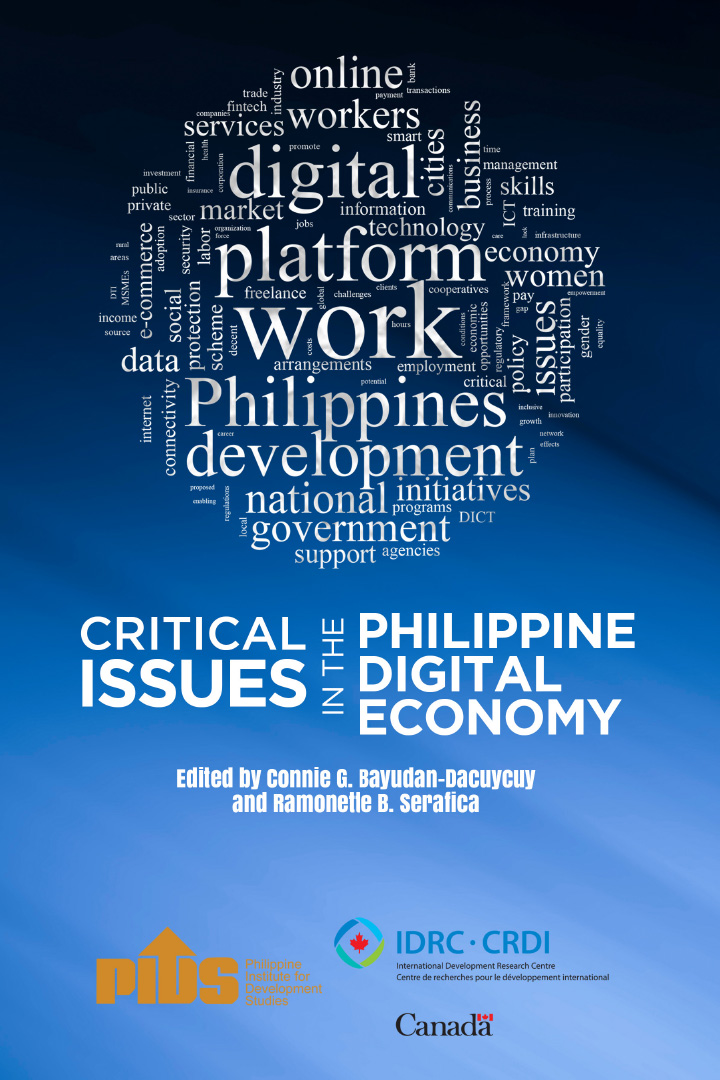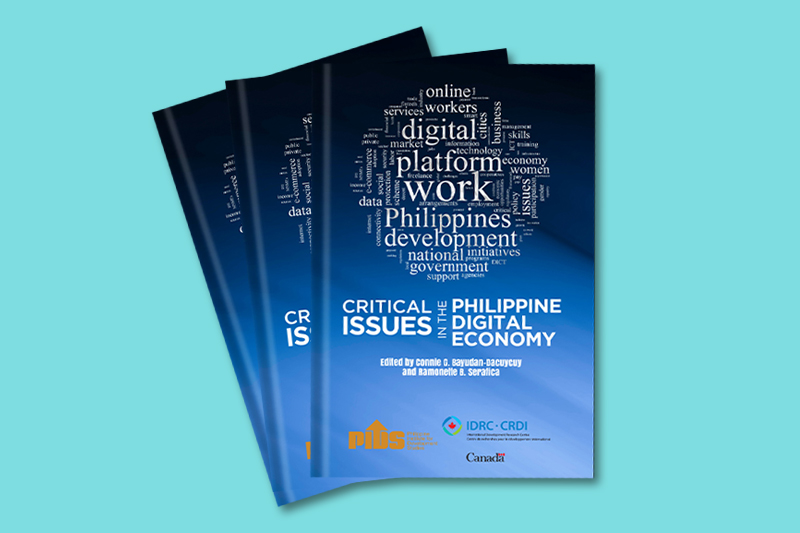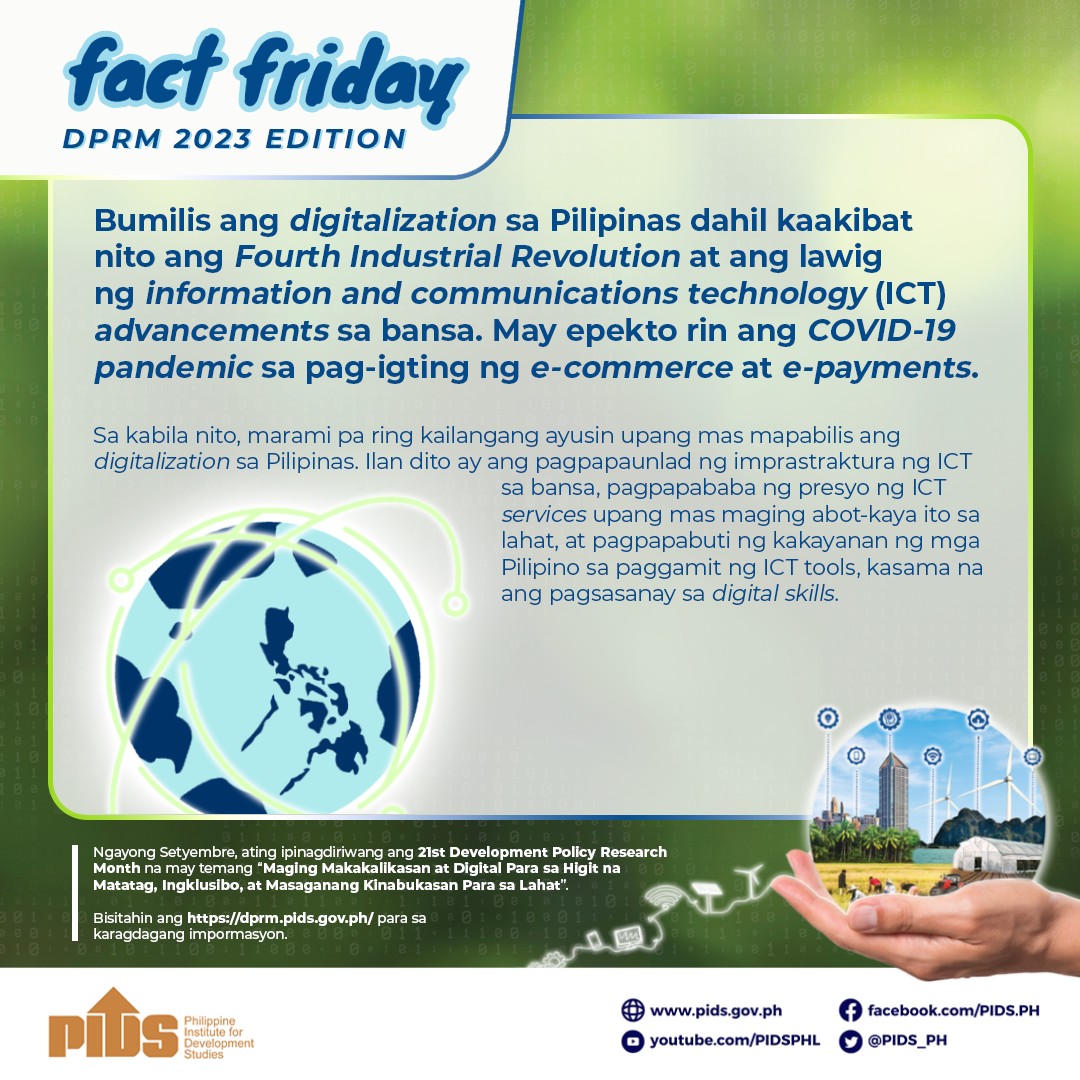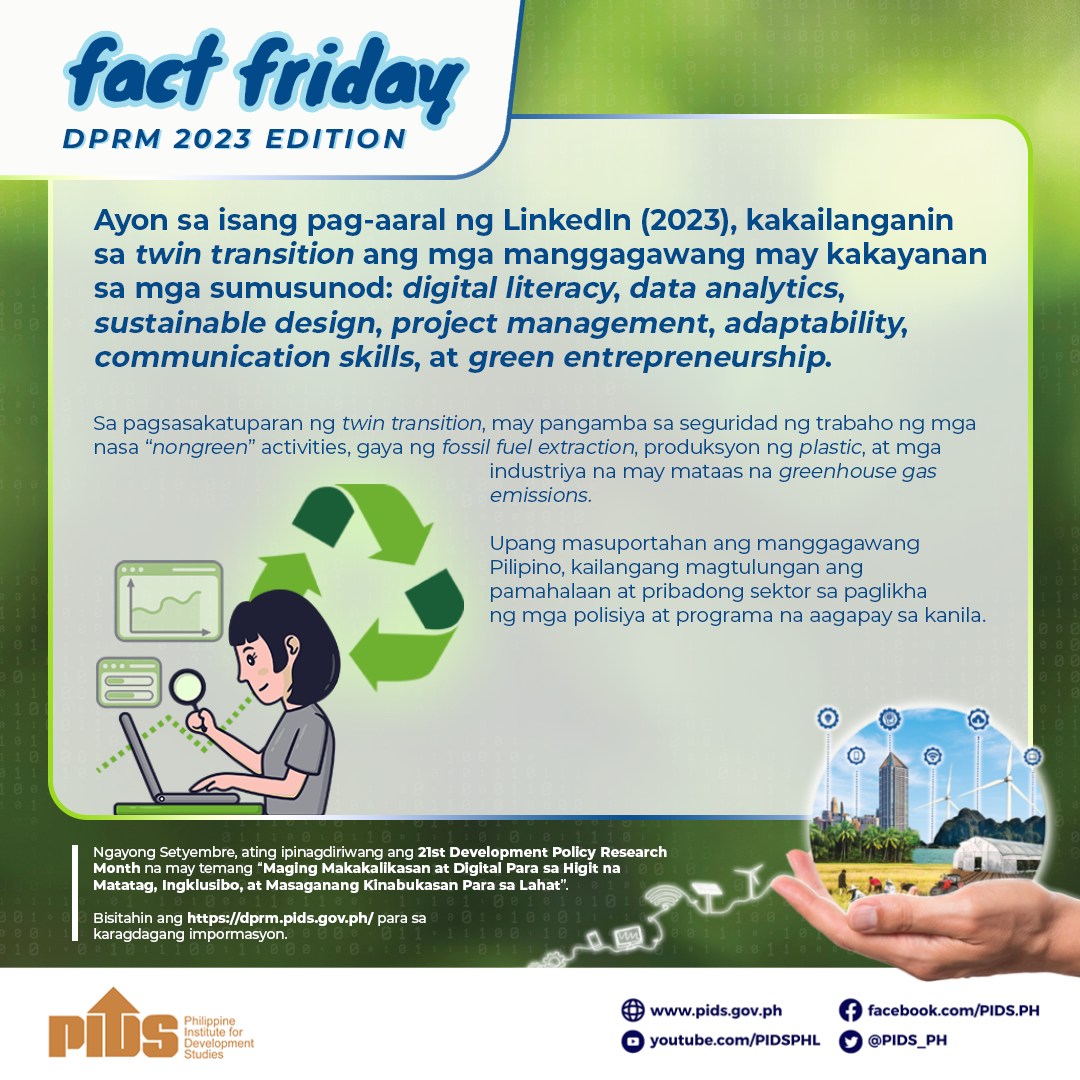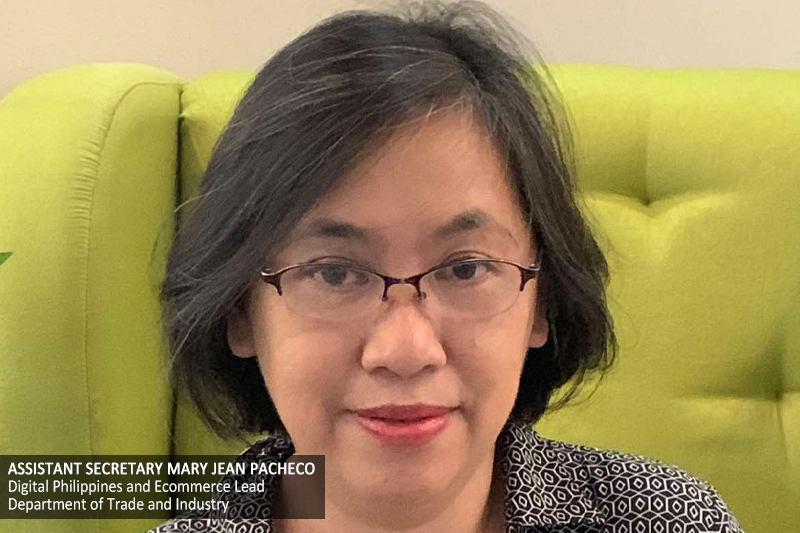
The Philippines is ready for digital trade integration with the Asia-Pacific region.
This was according to Department of Trade and Industry (DTI) Assistant Secretary for Digital Philippines and E-commerce Lead Mary Jean Pacheco during a webinar on digital trade and health integration where she served as a discussant. The webinar was jointly organized by state think tank Philippine Institute for Development Studies (PIDS) and the United Nations Economic and Social Commission for Asia and the Pacific.
“We are built for this [digital integration]. The Philippine market is a huge and fast-growing, predominantly young middle-class population, which uses the internet the most. We have substantially digitalized small and medium enterprises that are known for resiliency and creativity,” Pacheco said.
She noted that the country’s digital trade integration with the region would be accelerated due to “increased market demand, private sector investments on telecommunications, e-commerce logistics and digital payments, as well as a strong push by government on infrastructure development and digital trade-related policy reforms”.
The DTI official also stressed the importance of an “all of e-government approach”, where various government agencies have their initiatives to push for digitalization in the country. She said that “agencies shall continue to exercise their mandates under the law, but with a shared vision and goal to ensure the growth of e-commerce.”
Earlier this year, the DTI launched the E-commerce Philippine 2022 Roadmap, which highlights the accessibility and convenience of e-commerce. Through the roadmap, Pacheco said the country hopes to have a million e-commerce enterprises from the estimated 500,000 enterprises in 2020.
In terms of infrastructure, Pacheco noted the importance of internet connectivity in promoting digital transformation within the government.
“Both the legislative and executive branches of the government have formulated policies to address access to reliable, stable, and fast internet services. [The] government [also] made [the issuance of permits and licenses to] telecommunication towers easier,” Pacheco explained.
Another priority of the government, according to Pacheco, is investing in human capital, particularly on digital skills, saying that “digitalization of human capital is critical” in the country’s digital transformation.
“The DTI and the Technical Education and Skills Development Authority are collaborating with SkillsFuture Singapore in developing [a] skills framework to guide firms, [the] government, and workers in crafting and implementing [digital] reskilling and upskilling plans,” Pacheco explained.
Finally, she emphasized the importance of supporting start-ups in the country, noting that “funding support is needed to help innovators expand and gain more traction.” Pacheco said the funding for e-commerce innovation and technology investment is included under the roadmap.
You may watch the webinar at https://www.facebook.com/PIDS.PH/videos/154530150027559. For more videos of PIDS events, go to https://www.pids.gov.ph/videos.
This was according to Department of Trade and Industry (DTI) Assistant Secretary for Digital Philippines and E-commerce Lead Mary Jean Pacheco during a webinar on digital trade and health integration where she served as a discussant. The webinar was jointly organized by state think tank Philippine Institute for Development Studies (PIDS) and the United Nations Economic and Social Commission for Asia and the Pacific.
“We are built for this [digital integration]. The Philippine market is a huge and fast-growing, predominantly young middle-class population, which uses the internet the most. We have substantially digitalized small and medium enterprises that are known for resiliency and creativity,” Pacheco said.
She noted that the country’s digital trade integration with the region would be accelerated due to “increased market demand, private sector investments on telecommunications, e-commerce logistics and digital payments, as well as a strong push by government on infrastructure development and digital trade-related policy reforms”.
The DTI official also stressed the importance of an “all of e-government approach”, where various government agencies have their initiatives to push for digitalization in the country. She said that “agencies shall continue to exercise their mandates under the law, but with a shared vision and goal to ensure the growth of e-commerce.”
Earlier this year, the DTI launched the E-commerce Philippine 2022 Roadmap, which highlights the accessibility and convenience of e-commerce. Through the roadmap, Pacheco said the country hopes to have a million e-commerce enterprises from the estimated 500,000 enterprises in 2020.
In terms of infrastructure, Pacheco noted the importance of internet connectivity in promoting digital transformation within the government.
“Both the legislative and executive branches of the government have formulated policies to address access to reliable, stable, and fast internet services. [The] government [also] made [the issuance of permits and licenses to] telecommunication towers easier,” Pacheco explained.
Another priority of the government, according to Pacheco, is investing in human capital, particularly on digital skills, saying that “digitalization of human capital is critical” in the country’s digital transformation.
“The DTI and the Technical Education and Skills Development Authority are collaborating with SkillsFuture Singapore in developing [a] skills framework to guide firms, [the] government, and workers in crafting and implementing [digital] reskilling and upskilling plans,” Pacheco explained.
Finally, she emphasized the importance of supporting start-ups in the country, noting that “funding support is needed to help innovators expand and gain more traction.” Pacheco said the funding for e-commerce innovation and technology investment is included under the roadmap.
You may watch the webinar at https://www.facebook.com/PIDS.PH/videos/154530150027559. For more videos of PIDS events, go to https://www.pids.gov.ph/videos.

